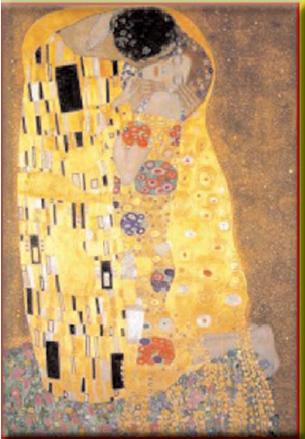
Mankind wrote about sexuality and love since some form of writing was invented. Even before, Homo sapiens tried to depict it in primitive rock paintings, later developing it into sculptures, and he felt the need to celebrate it by singing, dancing and in poetry, and to regulate it in the social and religious orders, and by some ones to exalt it in every shape and form. The subject seems to have occupied man’s mind in a poignant and continuous manner. Why is this so?
Was it simply for the survival inherent to the reproduction of our species? Once Homo sapiens was able to become conscious of the subject, as well as to control it and take care of it, why then did he continue discussing it, writing about it, fantasizing about it, legislating it? If the reason had been instinct, and if so predetermined, why then did the subject take interest and why did it concern the more “sapiens” side of humankind? One could invoke the complexity, ambivalence and opacity of affects flow: but what does it consist of?
Like in any civilization, up to this day and age, heaps of literature has been written about sexuality and love and is still being written: from fictional, to poetic, to pornographic as well as scientific. One would expect seriousness, reliability as well as clarity in scientific literature: but the opposite has occurred. Sciences which about it arrogate to themselves the trademark of scientificity, that is medical – biological sciences, present works which are anything but homogenous, but above all reductive: genetics and biology discuss very little about the human aspect of this subject which seems to have occupied, fascinated and preoccupied people’s minds. Medicine and Physiology limit themselves to explaining how the genital organs function, or how they should function and when someone suffers – ie. he is a “patient” (patient derives from the Latin verb patior=“to suffer”) –, rather than investigating the roots to the problem they run to correct functioning of the organs, neglecting the “person” in itself.
Neuroscience and Experimental Psychology has vastly demonstrated how all the sexual manifestations depend on the CNS that is the neuropsychic: nevertheless the idea that human sexuality is merely based on the sexual organs like the liver or the stomach persists, today even more than yesterday. But why does this resistance persist? Why in such extensive literature, sociological, anthropological and also psychological do we almost always find only sector-based contributions, often tinged with captivating and seductive spreading?
Most of these contributions seem to have the mistaken necessity to giving a clear and rapid answer: this leads to a packaging of the problems, with a methodological reductionism to find a single, unique answer. It’s worth asking ourselves why? Beyond the naïve considerations, this “why” still contains many enigmas today, which furthermore seem to multiply themselves looking towards the future of the evolution of our customs. Recently the psychological-experimental literature on attachment seems to accept and favour the integration between the various experimental methodologies and clinical observations, above all psychoanalytical. The theoretical hypothesis of psychoanalysis have anyway been largely reformulated. Even more recently, neuroscience, neuropsychoanalysis in particular, and in general the study of the emotive brain and that of the relational capacities, seem to promise more extensive knowledge. In this field the following text intends offering the reader a more global vision of the above this area, giving psychosocial hypothesis concerning the future of humanity.
